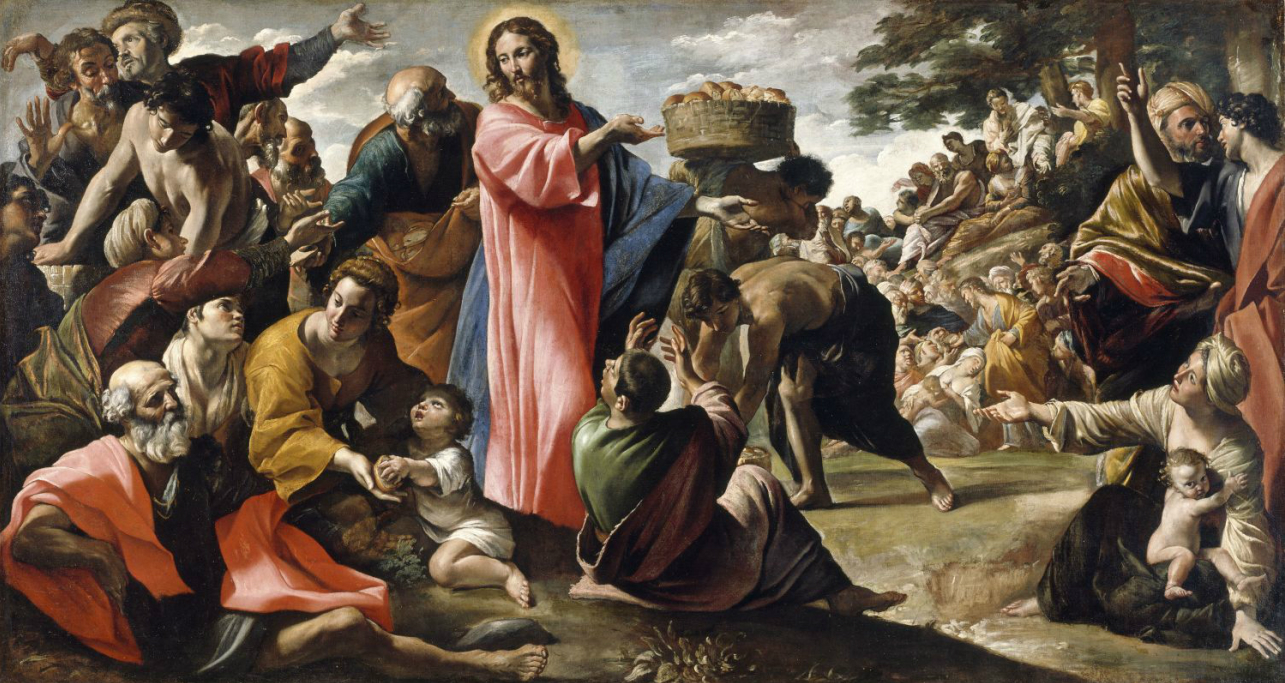Saint Paul asks a very important question in his letter to the Romans: “What will separate us from the love of Christ?” Then he lists a number of rhetorical examples of what one might think would do that: anguish, distress, persecution, famine, the sword and many others. Lest we let that little list run right past us, I want to emphasize that all of these things, when the original Roman church heard them, were equivalent to the end of the world. Saint Paul was asking – rhetorically of course – if Armageddon could separate us from the love of Christ, and the answer is quite emphatically, “NO!”
And the end of days was on the minds of the early Christians. They were often persecuted, cast out of the community, and even put to death. So it’s easy to see why Saint Paul would seek to give them comfort. But what about us? Does the message ring truth in our ears? Well, in these crazy days, how could it not? The whole aspect of a pandemic, a fast-spreading disease that travels through the whole world which does not have a firm cure or vaccine; well, in ancient days they’d call that a plague, and that too would be a sign of the end of the world in those ancient days. Add to that social unrest caused by racial injustice, tensions throughout the world, rampant crime in the city of Chicago, and so much more. There’s plenty for us to worry about and that is to say nothing of our own personal crises. Illness, death of a loved one, relationship issues, job stress or employment uncertainty. All of these things take a toll on us, and at times, we have to wonder if these are signs of the end times, or if we have actually been separated from God’s love.
The answer is as it was in Saint Paul’s day, absolutely not. If we want to see the answer underlined, all we have to do is look at today’s Gospel. Matthew takes note that when Jesus saw the vast crowds who had been following his every word and hanging on every miracle, he was moved with pity for them. I’m not a Greek scholar, but I love the word that is translated “pity” here. That Greek word is splanchnizomai, which is literally a deep-down, guttural reaction of sadness, pain, and even exasperation. It’s used also in John’s Gospel when Jesus arrives in the town of his friend Lazarus, who has just died, and sees the people’s grief. In that Gospel, the pity that he has causes him to cry out in anguish, giving voice to the deep feeling of compassion that Jesus had in that moment. In today’s reading, Jesus is moved with pity because of the people’s hunger: not just their physical hunger, but also the spiritual hunger that has been unmet for so very long. He felt that deep down to his very essence.
And so he takes five loaves and two fish – practically nothing – and feeds thousands of people, people he created out of practically nothing, but who were everything to him, and he goes about feeding every kind of hunger they have.
We’re going to go through rough stuff in our lives. The world may seem like it’s crumbling around us. It sure does right now. What is the right thing to do in this pandemic for ourselves, our loved ones, and all the people God has put in our paths? How do we keep people safe and well but still pass on the faith and meet their spiritual and temporal needs? I struggle with that on a daily basis. Many of you do too. How do we keep people safe and yet put an end to racial injustice that has been part of our history for far too long, and needs to be a long-distant bad memory as soon as we can make it happen? How do we keep on going when one crisis after another comes at us every day? The answer is that we need to lean more on the splanchnizomai of Christ, to remember that he has pity on us and wants to make us whole. Because while God may allow the bad things that happen to us as a consequence of the fallenness of our human nature, I think it’s important to note that he never intends us to be unhappy, never wants us to despair of his love. He might not wave a wand to make all our troubles go away, but he is always going to be with us in good times and bad, giving us grace to get through whatever we have to suffer, growing in his love, and becoming more in the process.
If God had meant anything to separate us from his love, he would have written us off in the Garden of Eden. But instead, he sent his Only-Begotten Son to walk with us, to feed us beyond anything we could hope for, to pay the price for our many sins, and to give us the invitation to everlasting life. That’s our God. And nothing can ever separate us from his love. Nothing.

![The Eighteenth Sunday of Ordinary Time [A]](https://father.mulcahy.net/wp-content/uploads/2010/06/cropped-IMG_1212-e1379750321530.jpg)
You must be logged in to post a comment.